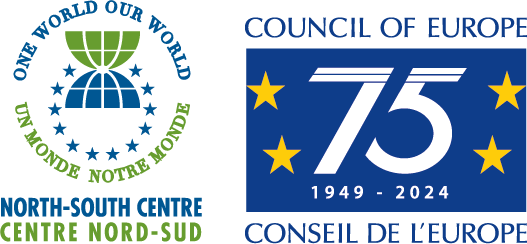The 3rd Global Education Congress held in Zagreb in November 2015 was the epilogue of a process initiated back in 2002, with the first GE Congress which established a European strategy framework for improving and increasing GE in Europe to the year 2015. This framework, agreed by practitioners and decision-makers in Maastricht, guided the NSC work implemented through its GE programme in the areas of awareness-raising and advocacy; capacity-building and pedagogical support; and in the area of policy development.
10 years after, when practitioners and decision-makers gathered for the 2nd GE Congress in Lisbon to tackle achievements made so far, progress was evident in networking strategies, capacity-building and in policy development, in particular through the adoption of the GE Recommendation by the Council of Europe Committee of Ministers, in 2011. The Lisbon Congress also confirmed NSC growing cooperation with other European and international organisations working in the field, keeping this orientation for the following years. For the 3rd GE Congress, the focus was put on the post-2015 Agenda, bringing the reflexion on GE position in relation to recent advancements, in particular in relation to UNESCO Global Citizenship Education programme launched in 2013 and UN SDGs and Education 2030 framework.
This reflexion was led, in preparation to the event, through a consultative process among institutional partners – namely CONCORD-DEEEP, GENE and UNESCO – and among GE practitioners and youth leaders.
A set of preliminary recommendations were drafted and guided the works during the Congress. The workshops, the panel discussion and plenary exchanges led to the endorsement of these recommendations in the field of National Strategy Development and Implementation; Curricula development; Professional Development of Educators; Quality support, Monitoring and Evaluation; Awareness Raising and Outreach.
The recommendations, together with the set of competences that workshops participants were invited to work on in the field of Intercultural & interfaith dialogue; Active citizenship; and Education & sustainability, will serve as a basis for the NSC work for the coming three years. Concretely, the set of competences will enable NSC to update its pedagogical tools (GE Guidelines; eLearning courses and training for trainers) while the Congress recommendations shall guide NSC advocacy work in the field of GE within CoE governing bodies and shall guide NSC policy-making strategy developed with its partners through the GE regional seminars planned in the Baltic, Balkan, Visegrad and South-East Europe & Mediterranean regions. These seminars will also serve to promote the CoE Competences for Democratic Culture project. The regional seminars will be organised in the context of a joint programme with the European Commission to promote dialogue, networking strategies, capacity building and exchange of practices in the field of GE. The NSC will keep its inclusive working methodology, involving institutional partners and stakeholders through a consultative process when outlining GE priorities and related activities, in line with the overall political context and directions taken by other stakeholders.




